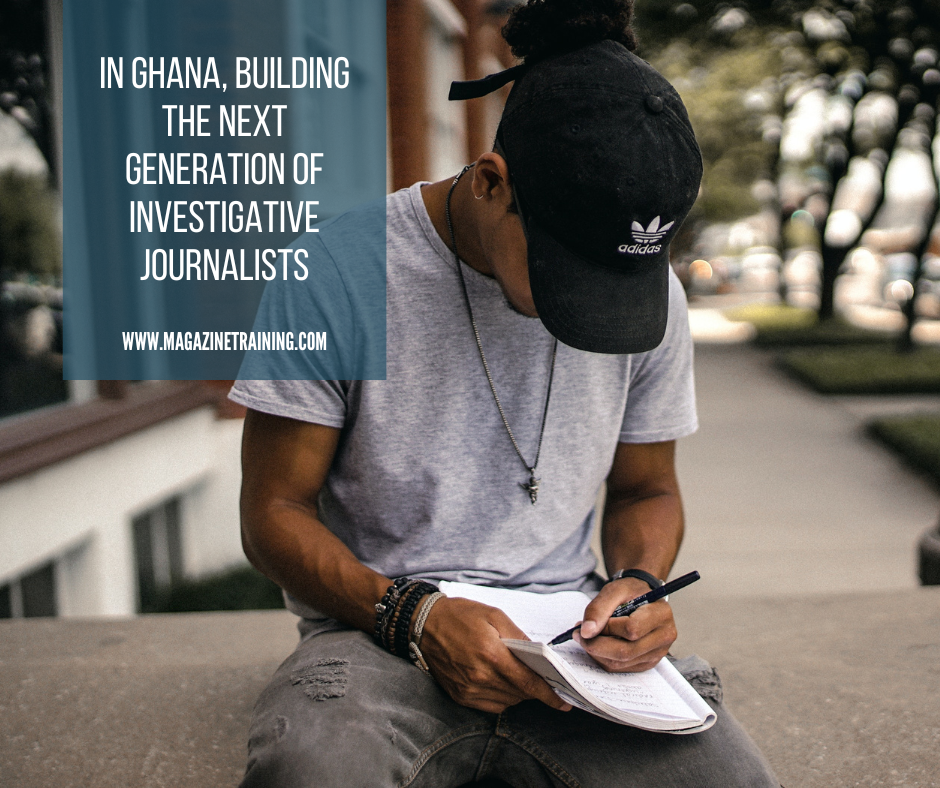
Although Ghana ranks highly as a democracy, press freedom in the West African country is deteriorating. In 2022, the country dropped 30 places in Reporters Without Borders’ global Press Freedom Index, and from the third to 10th position in Africa, as journalists have experienced worsening safety conditions in recent years.
“[Ghana] has been characterized by a semblance of official aversion for critical investigative journalism and an escalation of threats against investigative journalists,” said Sulemana Braimah, executive director at the Media Foundation for West Africa (MFWA).
Examples of the threats to Ghanaian journalists include the murder of journalist Ahmed Suale, following his involvement in the production of Anas Aremeyaw Anas’ documentary, “Number 12,” which exposed bribery and corruption activities involving Ghana football officials and referees. In 2020, Manasseh Azure Awuni, an investigative journalist and editor-in-chief of The Fourth Estate, was forced to flee the country after he received death threats due to an article he wrote on the outcome of the Ghanaian elections.
As the Ghanaian government has become increasingly intolerant of criticism, journalists are resorting to self-censorship to protect their jobs and their safety. As a result, critical, investigative journalism that holds power to account is on the decline in Ghana.
Despite these threats, journalists and media organizations in the country are committed to building the next generation of investigative reporters to hold individuals and institutions to account. Two initiatives in particular, the Investigative Journalism Club and Next Generation Investigative Journalism (NGIJ) Fellowship, are leading the charge.
Building a new generation
To preserve critical investigative journalism in Ghana, in March, Manesseh Awuni and MFWA launched the Investigative Journalism Club initiative across several Ghanaian universities, including the University of Cape Coast, the University of Education, Winneba and the African University College of Communications.
The Club initiatives teach students the fundamentals of investigative reporting, including how to perform in-depth research, conduct interviews, spot investigative stories, gain access to public records and adopt the necessary mindset to persevere in the face of media repression.
The idea of training investigative journalists through university clubs originated from a trip Awuni took to the U.S. for the 2014 International Visitor Leadership Program, where he saw how investigative journalism classes at Northwestern University resulted in impactful stories from students. He recognized that similar practical courses were lacking in Ghana, where universities’ curricula often lack a strong emphasis on reporting techniques and skill training.
While the clubs are still in their early stages, many have already hit the ground running. “Currently we are tasked with following current events in the country to determine which issues are worthy of investigation, after which we will share the ideas with our patrons for review and approval,” said Isaac Donkor, a student at the University of Media, Arts and Communication and member of the club.
by Arinze Chijioke, International Journalists’ Network
Photo by Brad Neathery on Unsplash
Related posts
Magazine Training International’s mission is to encourage, strengthen, and provide training and resources to Christian magazine publishers as they seek to build the church and reach their societies for Christ.

